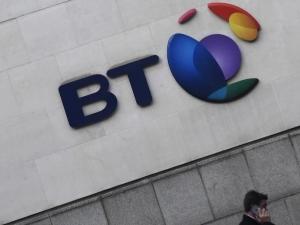
Britain's BT has been fined a record £42 million (R650 million) by the UK's telecoms regulator for failing to install high-speed lines for businesses fast enough.
The error is also likely to cost the company around £300 million (R4.6 billion) in compensation to rival telecoms operators.
The penalty is a result of an investigation by the Office of Communications (Ofcom) into BT's network arm, Openreach. The investigation found that, between January 2013 and December 2014, BT misused the terms of its contracts to reduce compensation payments owed to other telecoms providers for failing to deliver Ethernet services on time.
Ofcom says the telecoms operator, which runs Britain's major telecoms network, was in "serious breach" of Ofcom's rules.
Ethernet services are the most common type of leased lines - dedicated, high-speed cables used by large businesses and mobile and broadband providers, to transmit data.
Ofcom's investigations director, Gaucho Rasmussen, says the high-speed lines are a vital part of the UK's digital backbone and millions of people rely on BT's network for the phone and broadband services they use every day.
"We found BT broke our rules by failing to pay other telecoms companies proper compensation when these services were not provided on time. The size of our fine reflects how important these rules are to protect competition and, ultimately, consumers and businesses. Our message is clear - we will not tolerate this sort of behaviour," adds Rasmussen.
BT chief executive Gavin Patterson told Reuters the company took the issue very seriously, and had put in place measures, controls and people to prevent it happening again.
SA-based MTN faced a similar issue in October 2015 when it was fined $5.2 billion (R71 billion at the time) by the Nigerian Communication Commission for failing to meet a deadline to disconnect 5.1 million unregistered SIM cards in Nigeria. MTN eventually settled with the authorities in June 2016 and agreed to pay $1.67 billion (R25 billion at the time) to the federal government of Nigeria over three years.
BT's original fine was actually £60 million (R928 million) but Ofcom reduced this by 30% to reflect BT's "agreement to settle Ofcom's investigation by admitting full liability, and to set up a scheme to compensate the telecoms providers that have been affected".
BT must compensate, within 12 months, all the telecoms providers that faced financial loss because of its conduct. The telco has also received an additional £300 000 (R4.6 million) fine for failing to provide information to Ofcom.
"Through this Ethernet investigation, Ofcom became aware that BT failed to provide accurate and complete information for the original dispute, the Business Connectivity Market Review 2016 and this investigation," the regulator says.
"Ofcom takes any breach of our information-gathering powers very seriously as such failures undermine the integrity of the regulatory regime. Any company that breaks these rules should expect similar consequences."
This is more bad news for BT, which in January lost a fifth of its market value, when it was hit by an Italian accounting scandal that compounded a sudden slowdown in its British government work and forced the telecoms group to cut forecasts for the next two years.
The investigation
The Ofcom investigation started in November 2015 after a complaint by Vodafone that BT had misused its contractual terms through the late delivery of Ethernet services without Vodafone's consent, and by failing to compensate the company for these delays.
BT is obliged, under Ofcom's rules, to install Ethernet services to its wholesale customers (providers such as Vodafone and TalkTalk), and to make compensation payments for late delivery. BT's contracts require it to deliver Ethernet services within 30 working days, or pay compensation to the company affected.
If BT encounters problems that require more time to resolve, in certain circumstances it can assume a customer has agreed to an extension. But Ofcom found BT did this retrospectively over a sustained period, to reduce the level of compensation it owed to telecoms providers.
"Not only did this harm other telecoms companies, but it was also likely to have harmed the UK businesses and consumers who rely on high-quality, high-speed, broadband services every day," Ofcom adds.
Share